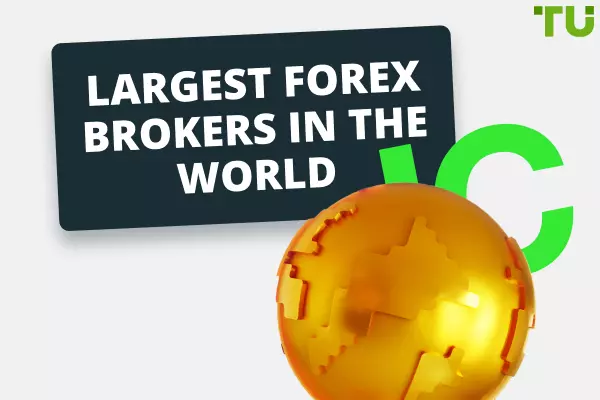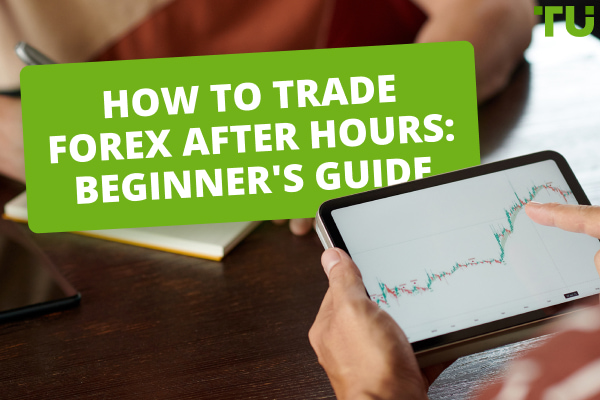How do I choose a Forex broker?
To choose a Forex broker, Traders Union’s experts suggest considering the following factors:
regulation;
fees;
trading platform;
customer support;
educational resources.
Choosing a Forex broker can be a daunting task for those new to investing. With so many options available, it's essential to consider factors such as fees, trading platform, and customer service before making a decision.
In this article, the experts at TU will dive into the world of Forex trading and help you understand the key considerations when choosing a Forex broker. In addition, they will address the question of whether it's possible to trade Forex without a broker, provide basic rules for choosing the right Forex broker, and give tips on identifying if a broker is a scam.
Is it possible to trade Forex without a broker?
Direct participation in the interbank market is not feasible for the individual trader, as this venue is restricted to large financial institutions and banks that trade billions of dollars daily.
Alternate methods to trade Forex without a broker do exist, such as Direct Market Access (DMA) or Electronic Communications Networks (ECN) which provide direct interbank access. However, these avenues impose very high minimum capital requirements that place them out of reach for a majority of individual traders.
For an individual trader to participate in the foreign exchange market, accessing an online trading platform connected to the Forex market is required. This platform access is commonly provided by a retail Forex brokerage, which acts as an intermediary between solo traders and the interbank Forex market.
Brokerage organizations offer several important services that make the trading experience smoother and more convenient for traders. These services include:
1. Platform access: Online trading platforms allow real-time currency purchases and sales. These platforms offer charting and analysis tools, as well as sophisticated order types and risk management strategies.
2. Market analysis and instruction: These resources can include economic calendars, technical analysis reports, and online seminars.
3. Customer Assistance: This support can come in the form of phone support, email support, or live chat support.
4. Leveraging: The majority of brokers offer leverage, which enables traders to trade larger positions than they could with their own capital. This can help traders maximize returns and minimize risk.
Basic rules for choosing a Forex broker
The experts at TU have outlined the following fundamental rules you can follow when making your choice:
1. Regulation: Ensure a respected financial regulatory body, such as the FCA in the UK or the NFA in the US, regulate the broker you're considering. This may assert that the broker operates within a stringent legal framework and adheres to high standards of transparency and accountability.
2. Fees: Assess the fees charged by the broker, including spreads, commissions, and account fees. Some brokers offer commission-free trading, but the spreads may be wider, so be sure to factor in the total cost of trading.
3. Trading platform: Evaluate the trading platform provided by the broker to ensure it is user-friendly, fast, and dependable. Additionally, take a look at the tools and resources available on the platform, such as charting tools and news feeds.
4. Customer service: Verify the availability and quality of customer support offered by the broker. It's essential to be able to easily reach customer support and receive prompt, helpful responses.
5. Leverage: Consider the leverage offered by the broker, as this can impact your potential returns. High leverage can increase your potential profits, but it can also raise your risk.
6. Payment methods: Take into account the payment methods offered by the broker and ensure they are secure and convenient for you. Some brokers may impose fees for certain payment methods, so make sure to factor this into your decision-making.
How to choose a broker for passive income
If you are looking for a broker to support your passive income strategies, it is crucial to consider the following factors:
Сopy trading. The broker should allow social copy trading, so you can copy successful traders. Check if they offer full automation for ease of use.
PAMM accounts. The broker should offer Percent Allocation Management Module (PAMM) accounts, which allow investors to pool funds that are traded by an experienced account manager. The broker should provide transparency into the manager's trading strategy, performance history, fees, etc.
Select proven traders. Look for brokers that allow filtering and selection of successful traders with good track records to copy or invest in through PAMM.
Check risk management. The broker should have risk management tools like stop losses and leverage limits to control risk when copy trading or using managed PAMM accounts. Check if the broker has protections like investor compensation funds in case a copied trader or PAMM manager loses funds.
Compare fees. The broker should have competitive spreads, commissions and fees for copy trading and PAMM investments. Look for low costs.
Check trading platforms. The platforms should be user-friendly with automation, analytics, and tools to easily search and evaluate traders to copy or PAMM accounts to invest in.
Read reviews. Check Forex broker reviews to see feedback on their copy trading and PAMM offerings specifically. Look for proven success.
How do you know if a broker is scamming you?
Forex trading involves a significant amount of risk, and it's essential to choose a broker that you can trust. Unfortunately, there are many fraudulent brokers in the industry that seek to take advantage of inexperienced traders. In the following section, experts have highlighted some red flags to look out for that may indicate that a broker is scamming you:
1. Unregulated brokers: Be wary of brokers that are not regulated by any financial regulatory body. Such brokers may engage in fraudulent activities and not provide adequate protection for your funds.
2. Unrealistic promises: Be cautious of brokers that make unrealistic promises, such as guaranteed profits, low-risk investments, or quick and easy wealth.
3. Withdrawal problems: If a broker is delaying or denying your withdrawal requests, it may be a sign of a scamming operation.
4. Odd trading conditions: Watch out for brokers that have unusual trading conditions, such as limited leverage or high spread.
5. Suspicious marketing practices: Be wary of brokers using aggressive marketing tactics, such as high-pressure sales or hidden fees.
6. Complaints and negative feedback: Check online forums and review sites for any complaints or negative feedback about the broker.
What are the different types of Forex brokers and how do they differ?
Forex market operates through various types of brokers, each with distinct mechanisms and characteristics. Here are the primary types of Forex brokers:
ECN (Electronic Communications Network) brokers: ECN brokers provide direct access to the interbank market and allow you to trade directly with liquidity providers like banks. They typically charge a commission but offer very tight spreads. ECN brokers match your order with the best available price in the market. They offer real-time order book information and display the actual market prices.
STP (Straight Through Processing) brokers: STP brokers route your orders directly to liquidity providers, banks or other brokers without human intervention. They act as an intermediary and usually offer variable spreads which can be lower during high liquidity times and higher during low liquidity times. Like ECN brokers, STP brokers operate a No Dealing Desk (NDD) model which reduces the likelihood of price manipulation.
Market Makers: Market makers set their own bid and ask prices rather than deriving them directly from the interbank market. They have a dealing desk that can take the opposite side of a client’s trade (could be a potential conflict of interest as they might profit from client losses). They often offer fixed spreads, providing a degree of price certainty. Spreads may be higher compared to ECN/STP brokers.
ECN/STP brokers (hybrid): These brokers combine features of both ECN and STP brokers. They route orders through an STP system to a pool of liquidity providers or an ECN network, depending on which can offer the best conditions for the order. They aim to provide competitive pricing by sourcing the best prices from either the ECN or STP networks. Spreads can be tight like an ECN or variable like an STP depending on market conditions. Commissions are usually applied like an ECN broker
Best Forex brokers 2024

FAQ
How do I choose the best broker for me?
To choose the best broker for you, you should consider several factors, including the broker's regulation, fees, trading platform, customer support, and reputation. It's also essential to assess your own trading needs, goals, and risk tolerance.
What currency pairs and leverage ratios should I look for in a broker?
A broker with a good selection of major, minor and perhaps some exotic pairs with mainstream leverage up to 1:30 or 1:50 is a balanced choice for most retail traders' needs.
Which broker is best for beginners?
For beginners, experts suggest looking for brokers with a user-friendly trading platform, comprehensive educational resources, and low minimum deposit requirements. According to analysts, brokers like XTB and RoboForex are known for providing excellent services for beginners.
What is the best type of broker?
The best type of broker for you depends on your individual trading needs and goals. According to analysts, if you are looking for low fees and a wide range of trading instruments, ECN (Electronic Communication Network) brokers like IC Markets may be a good option. On the other hand, if you are a beginner looking for a user-friendly platform and comprehensive educational resources, a market maker broker like XTB may be a better fit.
Team that worked on the article
Chinmay Soni is a financial analyst with more than 5 years of experience in working with stocks, Forex, derivatives, and other assets. As a founder of a boutique research firm and an active researcher, he covers various industries and fields, providing insights backed by statistical data. He is also an educator in the field of finance and technology.
As an author for Traders Union, he contributes his deep analytical insights on various topics, taking into account various aspects.
Olga Shendetskaya has been a part of the Traders Union team as an author, editor and proofreader since 2017. Since 2020, Shendetskaya has been the assistant chief editor of the website of Traders Union, an international association of traders. She has over 10 years of experience of working with economic and financial texts. In the period of 2017-2020, Olga has worked as a journalist and editor of laftNews news agency, economic and financial news sections. At the moment, Olga is a part of the team of top industry experts involved in creation of educational articles in finance and investment, overseeing their writing and publication on the Traders Union website.
Olga has extensive experience in writing and editing articles about the specifics of working in the Forex market, cryptocurrency market, stock exchanges and also in the segment of financial investment in general. This level of expertise allows Olga to create unique and comprehensive articles, describing complex investment mechanisms in a simple and accessible way for traders of any level.
Olga’s motto: Do well and you’ll be well!









